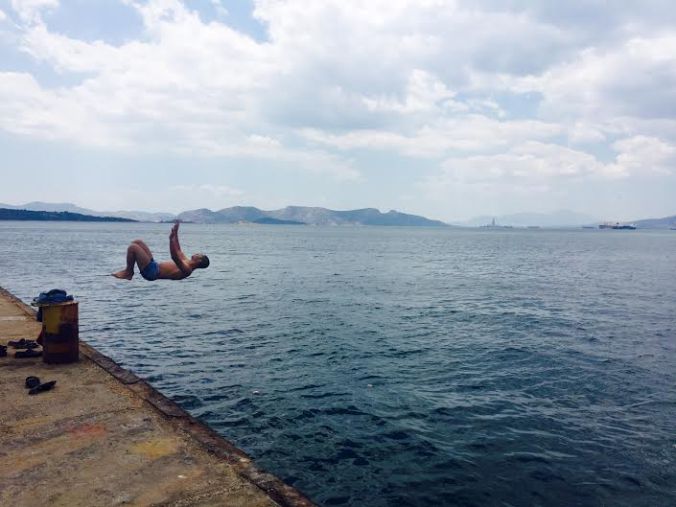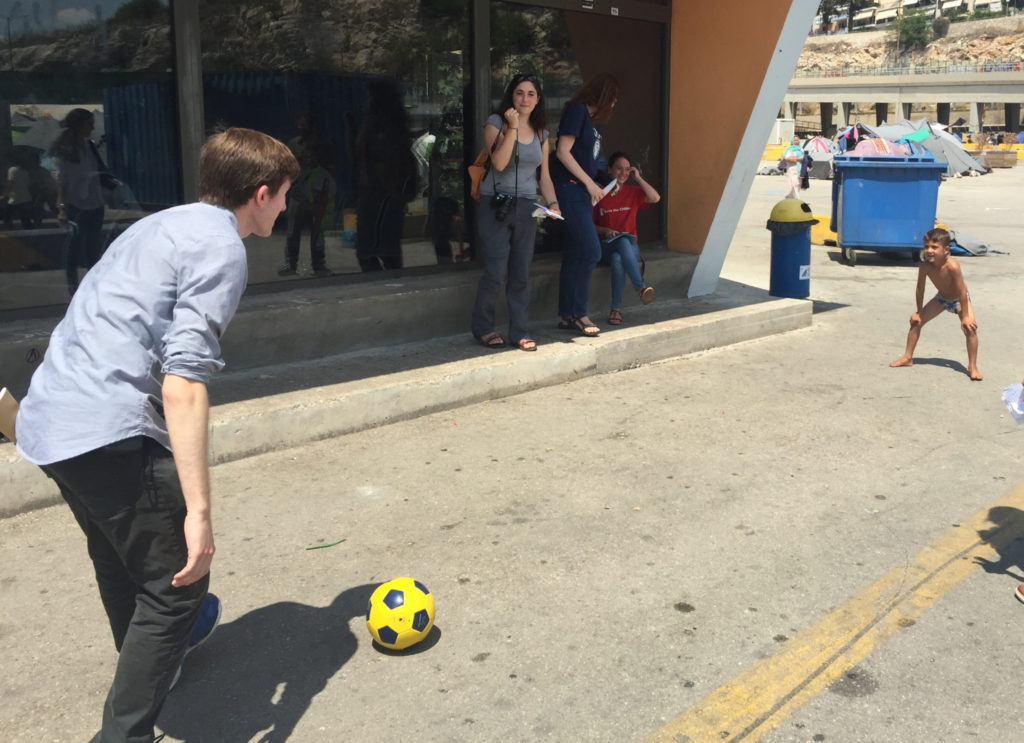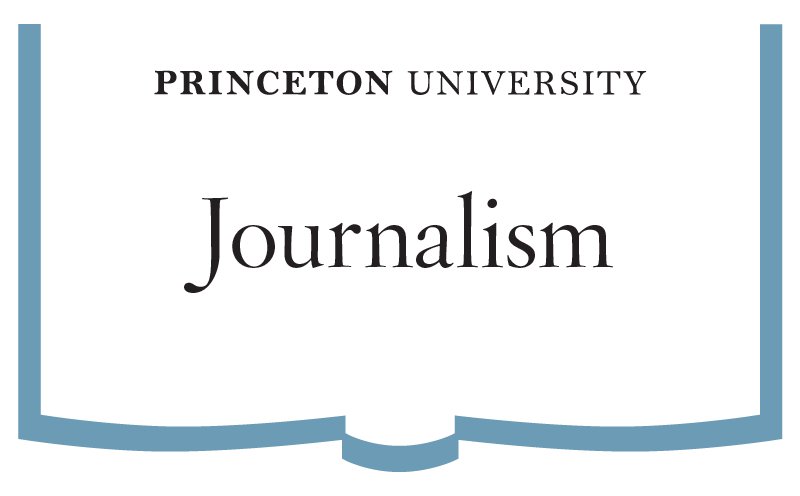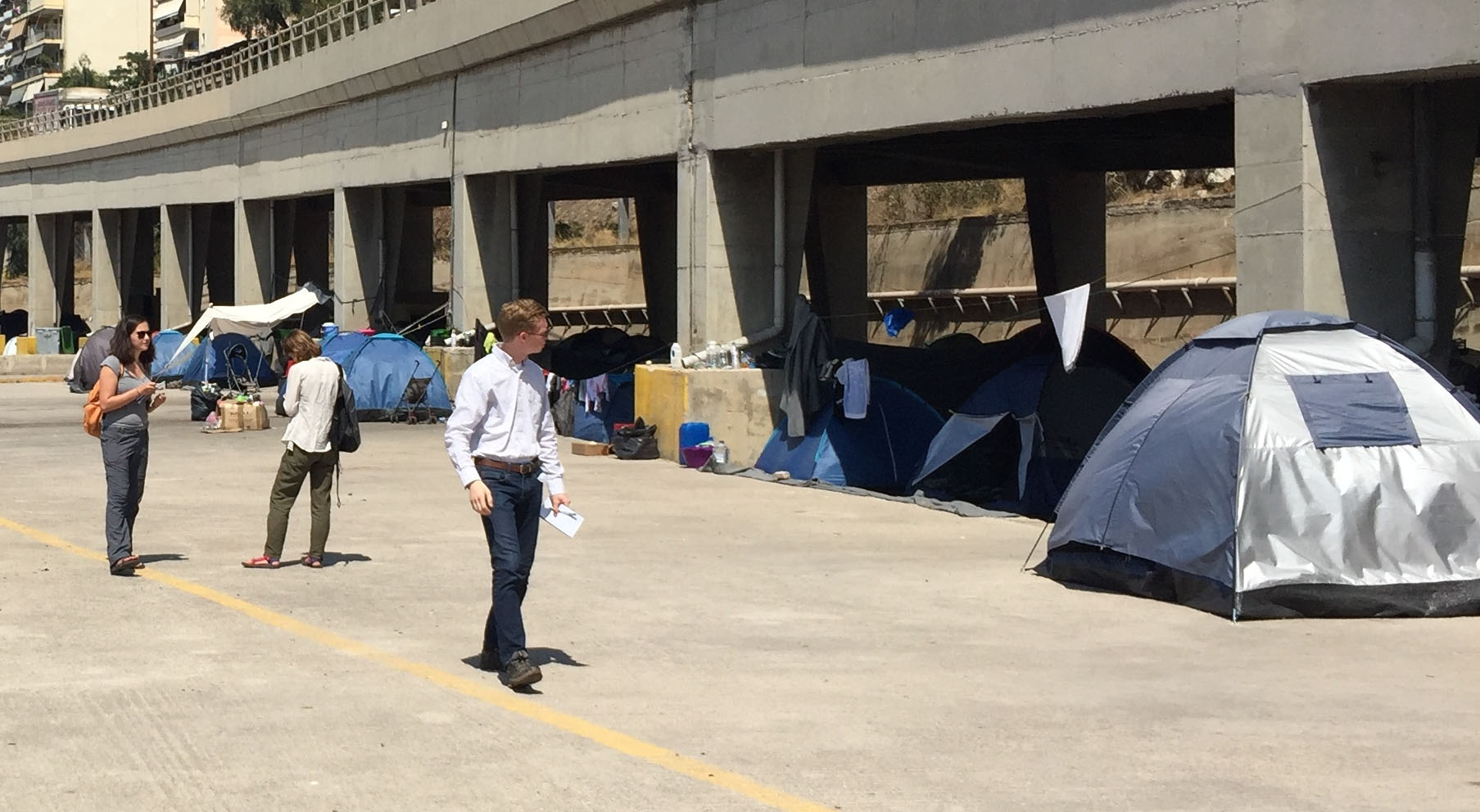Students enrolled in the innovative global journalism course, “Reporting on the Front Lines of History,” traveled to Greece for five weeks this summer. While immersing themselves in Greek history and culture, students simultaneously gained on-the-ground knowledge of international relations, global politics and the essentials of foreign correspondence.
Students spread across the Hellenic Republic, as a group and in pairs, notebooks and cameras in hand, documenting the refugee crisis and related stories at a pivotal moment in history. Under the direction of Joe Stephens, Ferris Professor of journalism and a veteran reporter for The Washington Post, they wrote articles, posted blog items and shot photos in and around Athens and on the island of Lesbos, where over the last year hundreds of thousands of refugees have arrived by boat from Turkey.

A refugee at Skaramagas camp swims in the food-littered industrial waters of Piraeus. (Hayley Roth)
As part of their reporting, students visited eight formal and informal refugee camps, each with its own distinct character. They interviewed scores of refugees and recorded their views and traced the paths of their journeys. They observed refugee artwork and video-recorded musical performances performed by migrants from a variety of nations. They interviewed humanitarian volunteers from organizations large and small. They toured living facilities for unaccompanied child refugees; reviewed documents and data regarding the migration crisis; and interviewed top government officials.

Journalism student Harrison Blackman plays soccer with a young refugee in Athens
Much of the students’ work can be found at commons.princeton.edu/globalreporting . You can also find their work by searching for #princetongr in Twitter, Facebook, Instagram and other social media. Other student-produced stories are now under consideration for publication by major news outlets. The pilot course also will soon be featured in an article under preparation by the university communications office, and another expected to be published in the Princeton Alumni Weekly magazine. Watch this space for updates.













